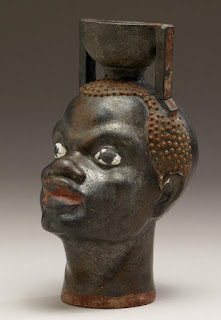Greek jobless end up on streets for lack of housing services
Dimitis Drimars had his own business for 30 years. The antiques dealer lost it in Greece's economic crisis and now spends his nights sleeping on a park bench in Syntagma Square in central Athens. "I lost everything - my business, my home, my security," the 51-year-old said. Across the country, tens of thousands of jobless people, many with college degrees and extensive work experience, are struggling to house themselves after a six-year recession that has sent unemployment soaring to almost 28 percent.
Those who can move in with parents and other relatives are the lucky ones. But that is not an option for a vast majority like Drimars whose families have been hit hard by the crisis that has wiped out 40 percent of disposable household incomes. "I do not want to lose my dignity as well," said Drimars, who has been homeless for 18 months. "I am determined to stand on my feet again - that's my only goal."
With shelters in short supply, the growing number of homeless people sleep on flattened cardboard boxes and wrapped in blankets on streets, in parks and ports, under bridges and in hospitals around Athens. "The new homeless are families, working-class individuals and even professionals," said Ada Alamanou, head of communications for Klimaka, a non-governmental social services agency for the poor. "They had a normal life and job, but lost everything during the economic crisis and are on the streets."
About 40,000 people are registered as being homeless in Greece, and Klimaka said at least half that number are believed to be based in Athens. Its figure for the capital is far above the city's official estimate of 1,000. "What we are seeing is that although unemployment is increasing, there are not enough services in place to deal with the increasing number of homeless people," said Alamanou, whose organisation each week serves more than 700 people who bathe, eat, and receive first aid and clean clothes at its downtown Athens shelter.
A study by Klimaka last year found that 89.7 percent of the homeless in Greece are Greeks and 64.8 percent have been homeless for the past two years. The survey also revealed that finding food was not a problem for more than 52 percent who frequent soup kitchens but that finding a place to take a shower was a major problem for more than 40 percent of the homeless population.
One reason more people are not going hungry is because of Drimars. He spends his days cooking for other homeless people with a group founded by another man who lost his job and his home. Costas Polychronopoulos was working in the marketing department of a multinational company when he was fired in a round of layoffs four years ago. "I spent the next two years looking for another job, but no one would hire me because of my age," said the 49-year-old who had to move in with his mother. "In the end, I just gave up hope."
Then, one night, Polychronopoulos witnessed something that would prove a turning point in his life. "I saw two children fighting over a few rotten pieces of fruit that they had found after digging through a garbage can," he said of his experience in the western Athens suburb of Egaleo two years ago.
"I went home, put together about a dozen sandwiches, and I took them to the kids," said Polychronopoulos, who then decided to take action to help those worse off than himself. He established a soup kitchen called Allos Anthropos, which means The Other Person. It relies on food donations from local residents and is run by other unemployed and homeless people. They travel to a different neighbourhood every day and cook for as many needy people as they can feed.
"This is our second time cooking here," Drimars said as he hauled a gas stove to a low table where the group would be cooking pasta in Monastiraki Square, just a stone's throw from the Acropolis. Finding places for the homeless to stay remains a bigger problem. Because of a lack of state housing, only a handful of those who apply for permanent shelter end up being accommodated. Out of the 200 beds currently available at the City of Athens homeless shelter, 130 are filled, said Nikolaos Kokkinos, the deputy mayor in charge of the city's welfare programmes.
"Homeless people must fulfil certain criteria before they get accepted," he said. "They cannot be alcoholic or drug users, have any serious illnesses and they must provide a document by the Finance Ministry proving that they do not own property and are unemployed." As winter approaches and temperatures drop, non-governmental organisations said authorities have no national action plan to accommodate the growing number of people living on the streets. "There is a draft proposal, which is a nice effort, but it remains frozen in the drawers of the Labour, Social Insurance and Welfare Ministry," said Ioanna Pertinidou from Praksis, a non-governmental organisation that serves the homeless.
Copyright Deutsche Presse-Agentur, 2013



